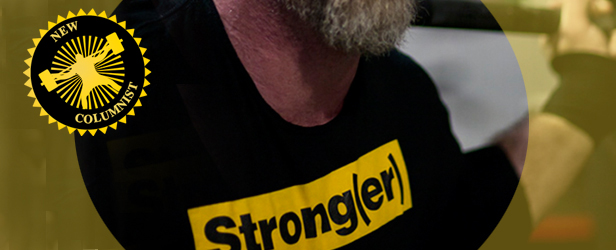
CSCS, ACE, NAN, ACSM, NSCA-CPT, AFPA, NFPT, NESTA, IFPA, CT, NPTIF, ISSA, NCFS, AFAA, and CPT.
Which of these acronyms are certifications that allow the holder to call himself or herself a personal trainer?
All of them.
Actually, there are no laws in most states that require a certification for one to call himself or herself a personal trainer. Anyone can hold himself or herself as one. However, in order to work in the personal training field at a gym, school, or university, one of these acronyms is usually required.
Yet, there are those who have been under the bar and who have been weight training with some success before the discipline of Sport Science was created and these certifications existed. For instance, is there anyone stronger than Donnnie Thompson? Is there anyone more knowledgeable than Louie? These are the exceptions, you say. Well, not quite. Actually, they are exceptional—not the exception. There are hundreds of people who have been successfully lifting for over 25 years, even 50 years. What about them? As my father once said to me, "I've forgotten more than you'll ever know."
The purpose of this discussion is not to disparage today's certified personal trainers. I am certain, just as in most professions, that there are intelligent, experienced, and caring people who do a wonderful job. On the other hand, I am also certain, just as in most professions, that there are those who are not very knowledgeable, and who are only there to profit from the current fitness trend without any regard for the benefit of their clients. What is a consumer to do? Ask, ask, and then ask some more! Depending on your goals, you need to know how this trainer or gym can meet those goals. You need to know if the gym has the equipment you need and if the trainer has the knowledge to fit your situation. No matter whether he is certified or not, how can he help you? What is his experience? How much time has he had under the bar?
If strength training and/or powerlifting improvement is your goal, time under the bar is more important than a certification, in my opinion. There are wonderful and informative articles and videos here on elitefts™ by authors without certifications but who have had extensive time under the bar. In turn, I recently taught a class in weight training where one of my students had a personal training certificate and was a master's degree candidate in Sport Science. However, a great deal of the course (which centered on powerlifting compound lifts) was new to him. I also met a gentleman at an IBP meet who was about my age and who actively participates (and wins) in powerlifting. He was an Olympic lifter in the '50s before the sport of powerlifting existed, and when he's not lifting, he judging. He's one of the most knowledgeable people I've met so far. He's the kind of guy who would be a great trainer.
In a courtroom, one can be qualified to testify as an expert in a particular field by reason of education or experience. My father once qualified to testify as an expert in the field of metal stress—not because he was educated, but because he had 40 years of experience in the field. Actually, I love some of the labels of experience that I've read here on elitefts™: "I have a PhD in experience and results" and "my knowledge is based on my scars from time under the bar." I'll probably steal both of them.
Many years ago, I met a gentleman from Chincoteague, Virginia, who had lived there all his life. He knew the small waterways there literally like the back of his hand. Once, when the PhDs and engineers from the U.S. Army Corps of Engineers came there to damn up one of the waterways, he explained to them why it would not work. He formed such a compelling argument, with great detail and logic, that they finally listened to him. They built the project as he said, and it worked beautifully. Exactly as he predicted. He explained to us that while he had no education or PhD, he did have a PDS—Pretty Damn Smart.
That's what I want in a trainer.










